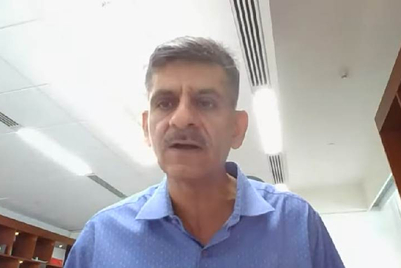Last month, the Federation of Indian Chambers of Commerce and Industry (FICCI) inaugurated the 13th edition of the Foodworld India show. Hemant Malik, chair, FICCI Food Processing Committee and CEO – food division, ITC addressed the gathering in the inaugural session.
Hemant Malik pointed out that, that as per a Nielsen report, the food processing industry is back to normal. In the past 12 months, there have been 3,500 new product launches of which more than half were focussed on health and hygiene trends.
However, Malik cautioned delegates that not everything is rosy. He said, "Some commodity prices have shot up. Prices of edible oils, which are one of the major commodities in the food processing industry, have shot up by almost 70% since the beginning of the pandemic."
Malik added, "Packaging material, which is a big cost component, has seen a price increase of 40-50% in both laminates as well as carton brown boxes. The way pricing works, the inflation would be carried forward into the price and we would have to see how it impacts volume growth."
One key trend, according to Malik, that was brought to the fore during the pandemic months has been "a paradigm shift in consumer trends due to a global demand for food safety and increasing food security.”
Malik also highlighted the shift in consumption patterns. “We see an increase in hygiene and immunity-based products. The increased awareness about health and wellness and lifestyle changes is going to transform the packaged food industry.”
Malik felt India is at a cusp. And a lot of unpackaged food will move to packaged food. “The second transformation will take place in how our marketing communication and product value proposition are worked out,” he adds.
He said the work-from-home culture has brought about a rapid shift in consumer culture and eating habits. This has impacted the on-the-go consumption, which is down by about 25-30%. Snacking in between meals is increasing or so are healthier alternatives and precooked ready-to-eat meals. Concern around preservatives and health is positively impacting organic foods.
The changing trends, however, bring new opportunities. “India faces challenges of obesity, diabetes along with a large population, which is malnourished. If we look at the NFS 2020 report and compare it to the 2015 report, there hasn't been much change. This is an important area that food manufacturers can work on,” Malik observed.
New trends in sustainability, health and wellness, and convenience are some pillars that will drive formulation, packaging and marketing in the food and beverage industry.
Malik explains: “The role of FSSAI has been very important during these times. They have come up with very clear regulation during the Covid times so that the entire packaged food industry can be part of essential commodities.
“More importantly, FSSAI is bringing in global benchmarks to make sure that Indian food standards are similar to global benchmarks. A lot of work has happened in creating a digital ecosystem, which is helping in licensing and ease of doing business.
“There have also been discussions around colour-coding of products to indicate high-fat high sugar content. If we follow the WHO CRO guidelines, a lot of our everyday products will get coded red. Hence, more discussion and working together are necessary.”
In a subsequent session, Malik pointed out that there was "a 20% drop in the quarter after lockdown mostly in the out of home and restaurant space." But he cautioned about other headwinds in terms of inflation and pricing of commodities and packaging materials, plus the second wave of the coronavirus.
Talking about repositioning products and marketing messages, Malik said people are questioning what you are putting in your packs especially in the e-commerce space. He said, "Customers need information. But in terms of product positioning and messaging, we will have to take it by brand." Malik shared an ITC case study about a recently launched liquid milk product in Kolkata. The ITC team provided with a daily milk report card over WhatsApp and there was a good deal of engagement. Likewise in the juice segments, ITC decided to source fruits from India and "positioned the brand accordingly."
Further, he stated that India is seeing a transformational shift in the food processing industry. Be it: products to services to experiences to insights. He pointed out, "Today, consumers are becoming more and more conscious about food safety and quality. They evaluate this through criteria such as healthiness quotient, nutritional value, sustainable sourcing and procurement practices and packaging among others."
He flagged a few key concerns: "To make consumers more aware of these quality and safety aspects of food, the corporates and the government are undertaking significant initiatives with the objective of building consumer credibility. With the changing times, food companies are undertaking efforts to build brand credibility, educate consumers about the safety and quality of processed food and provide transparent information about their products. And finally, the food industry is addressing concerns around food counterfeiting in the domestic market."
This article first appeared in WhatPackaging? magazine




.jpg&h=334&w=500&q=100&v=20250320&c=1)
.jpg&h=334&w=500&q=100&v=20250320&c=1)
.jpg&h=334&w=500&q=100&v=20250320&c=1)
.jpg&h=334&w=500&q=100&v=20250320&c=1)

.jpg&h=334&w=500&q=100&v=20250320&c=1)

.jpg&h=334&w=500&q=100&v=20250320&c=1)






.jpg&h=268&w=401&q=100&v=20250320&c=1)
.jpg&h=268&w=401&q=100&v=20250320&c=1)
.jpg&h=268&w=401&q=100&v=20250320&c=1)

